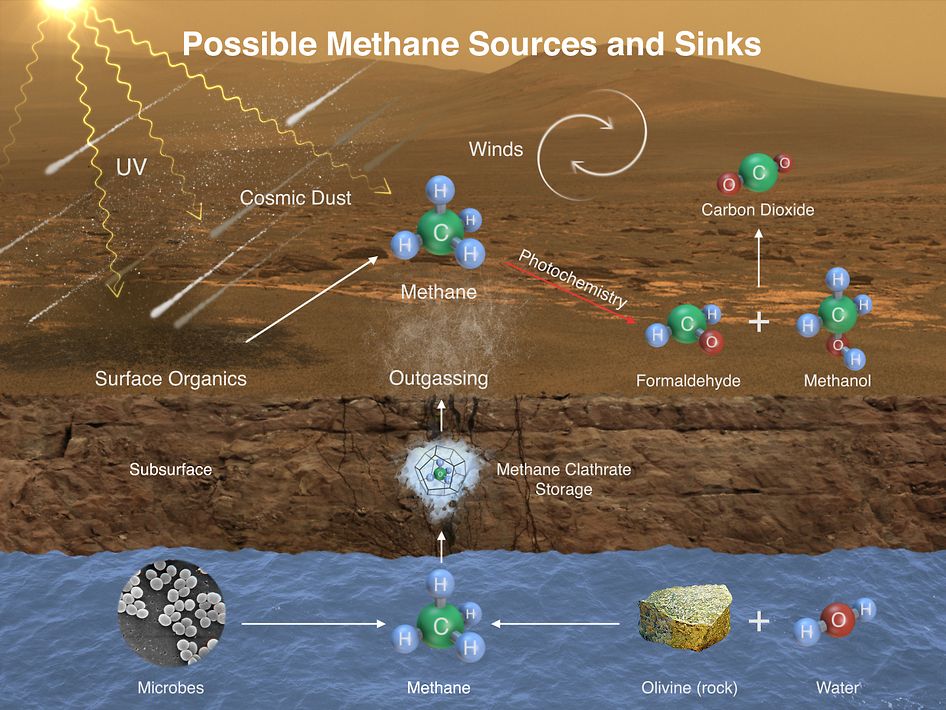Is the Curiosity Rover Behind Weird Methane Readings on Mars?
The debate over methane is causing a stink among scientists
:focal(591x214:592x215)/https://tf-cmsv2-smithsonianmag-media.s3.amazonaws.com/filer/94/18/94184dc4-0027-402d-9433-695ddcffcc71/pia19142_malhi-mojave.jpg)
Does Mars produce methane? It’s a debate that’s causing a rift among scientists, who have embarked on a decades-long quest to determine whether the planet can support life. Now, NASA’s Curiosity Rover has detected a spike in methane gas on the red planet — but could the source be the rover itself? Johnny Bontemps reports for Discovery News that the Mars gas that’s making earth-based scientists scratch their head.
The saga of whether there’s really methane on Mars has been almost 50 years in the making, writes Bontemps. In 1969, NASA’s Mariner 7 detected methane on Mars, then retracted its finding after the methane turned out to be from the planet’s icy carbon dioxide polar caps.
That hasn’t stopped scientists from continuing their search — and despite some false starts, Curiosity detected what NASA hailed as a “tenfold spike in methane” last year. The discovery of methane on Mars would be cause for intrigue indeed: methane is produced by living organisms like microbes and could be a sign that the planet is or was able to support life.
But some scientists are expressing skepticism. NASA’s Kevin Zahnle, who was not involved with the study, tells Bontemps that the methane “had to be coming from the rover” instead of Mars itself. He theorizes that trace amounts of methane found in Curiosity’s antechamber could be skewing the results and making it appear as if there’s methane on the planet instead of inside the rover itself.
Curiosity’s team, however, is more optimistic. They contend that they’ve detected more methane than that which can be found inside the rover and tell Bontemps that the culprit could be seasonal changes on the planet or even offgassing from an as yet undiscovered meteorite.
So: is there really methane on Mars? Whether it comes from the rover or not, the answer appears to be a cautious “yes”. But until there’s more concrete evidence, the methane debate seems doomed to rage on — at a recent seminar devoted to the question, Zahnle called the gaseous quandary “the question that may never go away.”

/https://tf-cmsv2-smithsonianmag-media.s3.amazonaws.com/accounts/headshot/erin.png)
/https://tf-cmsv2-smithsonianmag-media.s3.amazonaws.com/accounts/headshot/erin.png)